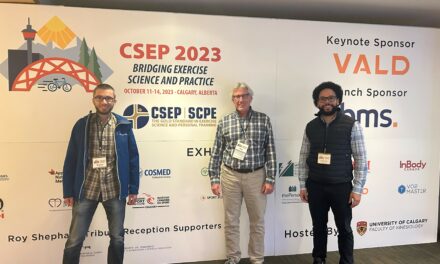PhD student Travis Saunders has authored a paper titled, “Children and youth do not compensate for an imposed bout of prolonged sitting by reducing subsequent food intake or increasing physical activity levels: a randomised cross-over study,” that was recently published in the British Journal of Nutrition. Other HALO researchers including Dr. Jean-Philippe Chaput, Dr. Gary Goldfield, Dr. Rachel Colley and Dr. Mark Tremblay were authors on the paper. Citations details and a summary of the paper are below.
Saunders TJ, Chaput JP, Goldfield GS, Colley RC, Kenny GP, Doucet E, Tremblay MS. Children and youth do not compensate for an imposed bout of prolonged sitting by reducing subsequent food intake or increasing physical activity levels: a randomised cross-over study. Br J Nutr. 2013 Sep 4:1-8. [Epub ahead of print]
ABSTRACT: The behavioural impact of an imposed bout of prolonged sitting is yet to be investigated in the paediatric population. The objective of the present study was to determine the acute effect of prolonged sitting on ad libitum food intake and spontaneous physical activity (PA) levels in healthy children and youth. A total of twenty healthy youth (twelve males and eight females) aged 10-14 years, with a mean BMI of 18·6 (sd 4·3) kg/m2, were exposed to three experimental conditions in a random order: (1) a day of uninterrupted sitting (Sedentary); (2) a day of sitting interrupted with a 2 min light-intensity walk break every 20 min (Breaks); (3) a day of sitting interrupted with a 2 min light-intensity walk break every 20 min as well as 2 × 20 min of moderate-intensity PA (Breaks+PA). Food intake (ad libitum buffet meal) and PA (accelerometry for 24 h) were assessed following exposure to each experimental condition. Despite significant differences in sedentary behaviour and activity levels during the three in-laboratory sessions (all P< 0·01), we did not observe any differences in ad libitum food intake immediately following exposure to each experimental condition or any changes in the levels of sedentary behaviour or PA in the 24 h following exposure to each experimental condition (all P>0·25). These findings suggest that children and youth may not compensate for an imposed bout of sedentary behaviour by reducing subsequent food intake or increasing PA levels.





